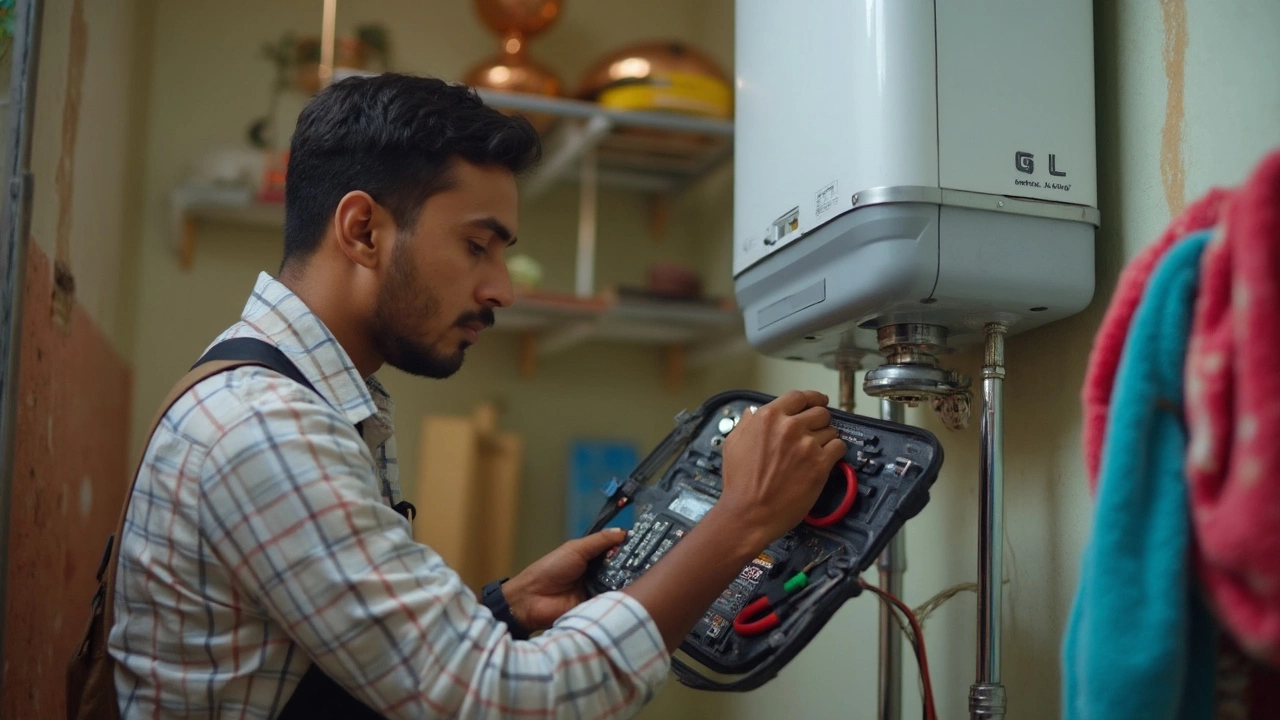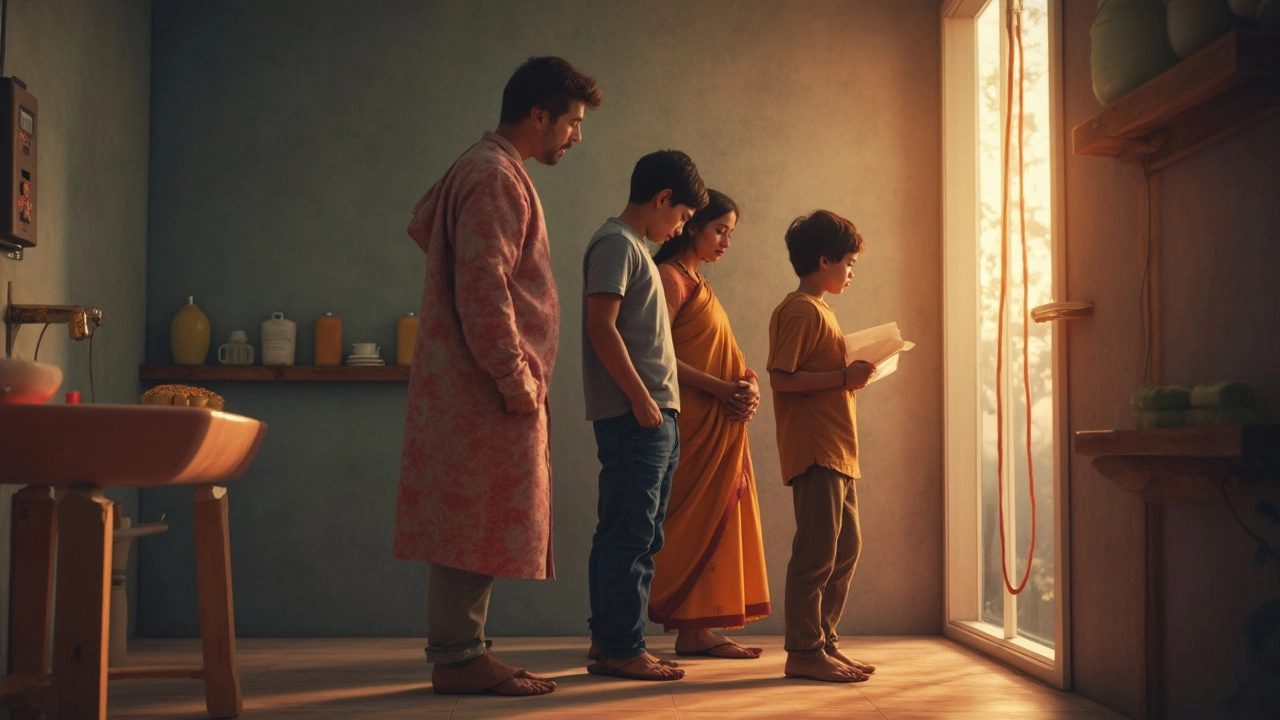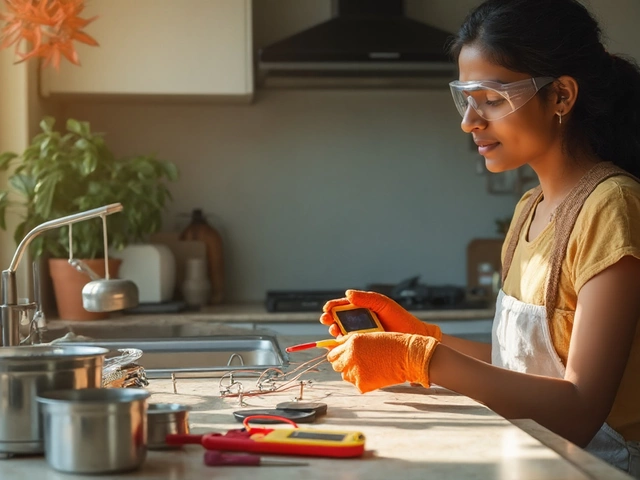Nothing ruins your day faster than hopping into the shower only to get hit with a blast of freezing cold water. If your hot water heater just won't kick on, you’re probably standing there shivering and wondering what went wrong. Good news: most of the time, the reason is something you can spot with just a little detective work.
Start with the basics. Is the heater getting power? For electric models, check your circuit breaker—flipping it off and on usually resets things if it’s just a small hiccup. Gas water heaters can trip out if the pilot light blows out, which can happen on a windy day or after a gas interruption. Take a peek and see if the pilot flame is on. If it’s not, most modern heaters have a simple relighting procedure printed right on the side.
While you’re poking around, glance at the thermostat. If it’s set too low, your heater might decide there’s no need to fire up. More often than not, someone trying to save a few bucks on energy bills turns the setting down without telling anybody. Crank it up a notch and see if the heater wakes back up.
- Power Issues and Quick Checks
- Thermostat and Heating Problems
- Gas vs. Electric: Key Differences
- When It’s Time to Call for Help
Power Issues and Quick Checks
Before you start worrying about a broken water heater, check the simple stuff first. Power problems are one of the top reasons a hot water heater won’t fire up. If the unit gets no juice, nothing works—no matter how new or fancy it is.
For electric water heaters, head straight to your breaker box. Sometimes, a power surge or even running too many appliances at once can trip the circuit. Look for a switch labeled "water heater" and see if it’s in the "on" position. If it's off or somewhere in the middle, flip it off fully, then back on. Nine times out of ten, a quick reset will do the trick.
- If your heater uses a regular wall plug, make sure the plug isn’t loose. Wall outlets can wear out after years of use.
- Look for a GFCI outlet nearby (the one with reset buttons). If it’s tripped, press the "reset" button to restore power.
- Pop open the service panel on the water heater—just make sure you’re not standing in water and flip the breaker off first. Check for signs of burnt wires or a blown fuse. Never touch exposed wires unless you know what you’re doing. If you spot scorch marks or melted plastic, call a pro right away.
Gas heaters have their own checklist. If your heater isn’t making any noise and you don’t smell gas (which is rare these days), the pilot light might be out. Some models use a spark igniter, while old models have a pilot flame. Follow the instructions on your heater’s sticker to relight it. No luck? There could be a problem with the thermocouple—a little safety sensor that acts like a watchdog, shutting off gas if the pilot light goes out.
Here’s a quick cheat sheet to spot the most common power issues:
| Problem | Quick Check | Quick Fix |
|---|---|---|
| Electric heater dead | Tripped breaker, loose plug, GFCI outlet | Reset breaker, plug in tight, hit "reset" |
| Gas heater silent | Pilot light out, no clicking or flames | Relight pilot, check thermocouple |
| No power at all | Burnt wires, bad outlet | Call an electrician |
One last thing: if nothing resets and the heater still won’t turn on, try plugging something else into the outlet. If the new device works, the water heater probably has an issue. If it doesn't, the outlet itself might be toast.
Thermostat and Heating Problems
If your hot water heater isn’t firing up, your thermostat might be at the root of things. The thermostat is like the brain of the operation—it tells your heater when to switch on and off to keep water at the right temp.
The most common slip-up is actually just forgetting the set point. Water heaters typically sit between 120 and 140°F (49 to 60°C). Below 120°F, you’re not getting much heat, and above 140°F, you risk scalding and higher energy bills. A bump up or down from this sweet spot can cause all sorts of confusion. If your water is lukewarm or flat-out cold, check the thermostat dial or digital setting. Adjust it if needed, then give your heater about an hour to see if it reacts.
But sometimes, the thermostat itself is faulty. Old models and even some newer ones can burn out or lose calibration, making them send wrong signals. When that happens, the heating element or burner never gets the memo to kick on. Here’s a quick way you can test if the thermostat is the problem:
- Turn off power to the heater (breaker for electric, gas line for gas models).
- Remove the thermostat cover. Usually, you'll see some basic wiring and a simple temperature control knob.
- With a multimeter, check for continuity on the thermostat. No reading? You probably need a new thermostat.
Now, moving to the heating side—electric heaters have one or two heating elements. These act like giant kettle coils, getting red hot when electricity flows through. If an element burns out (which happens a lot after about 6-8 years), you’ll get either less hot water or none at all. For gas heaters, the trouble might be with the gas burner or, more commonly, a thermocouple that stops sensing the pilot flame.
Here’s a simple table with common thermostat and heating problems, plus what tends to fix them:
| Problem | Signs | Fix |
|---|---|---|
| Mis-set thermostat | Water too cold or too hot | Reset thermostat to 120-140°F |
| Failed thermostat | No consistent heating | Replace thermostat |
| Burned heating element (electric) | Quickly runs out of hot water, or none at all | Replace heating element |
| Faulty thermocouple (gas) | Pilot won’t stay lit, burner silent | Replace thermocouple |
If you aren’t seeing any obvious settings out of place and you’re handy with tools, a cheap replacement thermostat or heating element can save you from a cold start—and a big repair bill. Of course, if you’re not comfortable poking around wires or gas, don’t push your luck. That’s when it’s time to call in a pro.

Gas vs. Electric: Key Differences
Knowing whether your hot water heater is gas or electric changes how you troubleshoot when it won’t start up. Both types heat water, but they do it in very different ways and are prone to different issues.
Let’s break it down:
- Electric water heaters use two heating elements inside the tank. They’re basically big electric coils that get hot when you turn on the unit. If your heater is not starting, a tripped breaker or blown fuse is often the culprit. Bad thermostat or burnt-out heating elements are common headaches, too.
- Gas water heaters rely on a burner fueled by natural gas or propane. The gas comes in, ignites at the base (usually with a pilot or a newer electronic igniter), and heats up the water. If you’ve got no hot water, odds are the pilot light is out, the thermocouple has gone bad, or there’s an issue with the gas line.
Here’s a quick comparison to make it clearer:
| Feature | Gas Water Heater | Electric Water Heater |
|---|---|---|
| Power Source | Natural gas or propane | Electricity |
| Heat-Up Speed | Faster | Slower |
| Common Startup Problem | Pilot light out, bad thermocouple | Tripped breaker, burnt-out element |
| Average Recovery Rate (gallons/hour) | 50-70 | 14-24 |
If you smell gas anywhere near your heater, leave and call the utility company or a pro—don’t try lighting anything yourself. With electric units, always cut off the breaker before touching wires or panels. Most folks are surprised that gas heaters recover hot water a lot faster, but they also need more regular checks for leaks and venting problems. Electric models are simpler, but they’re dead in the water if you lose power.
No matter the type, always start with power and fuel before replacing or adjusting the unit. Sometimes the answer’s right in front of you—a blown fuse or an unlit pilot light is often all that’s wrong with your hot water heater.
When It’s Time to Call for Help
Some hot water heater problems just aren’t worth wrestling with—especially if you’ve checked power, settings, and the simple stuff, but still have no luck. Modern water heaters are safer than the old tanks your grandparents had, but they’re still full of high voltage, gas, and hot water. That’s not something to tinker with if you’re not sure what you’re doing.
Here’s when you should pick up the phone:
- Hot water heater is leaking anywhere—around the tank, pipes, valves, or underneath. Water plus electricity or gas isn’t a combo you want to mess with.
- No power and breakers keep tripping back off. That usually means a short or wiring issue, which can turn into a fire hazard fast.
- The pilot light won’t stay on, or you smell gas—quit trying to relight and get out. Natural gas problems are always an emergency, and you should call a pro right away.
- There’s a lot of rust in your hot water, especially if it shows up suddenly. That can signal corrosion inside the tank, which can burst without warning.
- You hear weird popping, screeching, or banging noises from the unit that don’t stop. That might mean heavy sediment buildup or a failing heating element—both are best left to someone who knows their way around water heaters.
Honestly, if you’re scratching your head after checking the easy stuff, it’s smarter—and a lot safer—to get an expert involved. Licensed plumbers and technicians have tools to test parts like thermostats, heating elements, and pressure relief valves without risking extra damage or putting themselves in danger. Plus, if your water heater is under warranty, trying to fix it yourself might void your coverage. So, if you’re not sure, don’t sweat it—just let a pro handle it.



